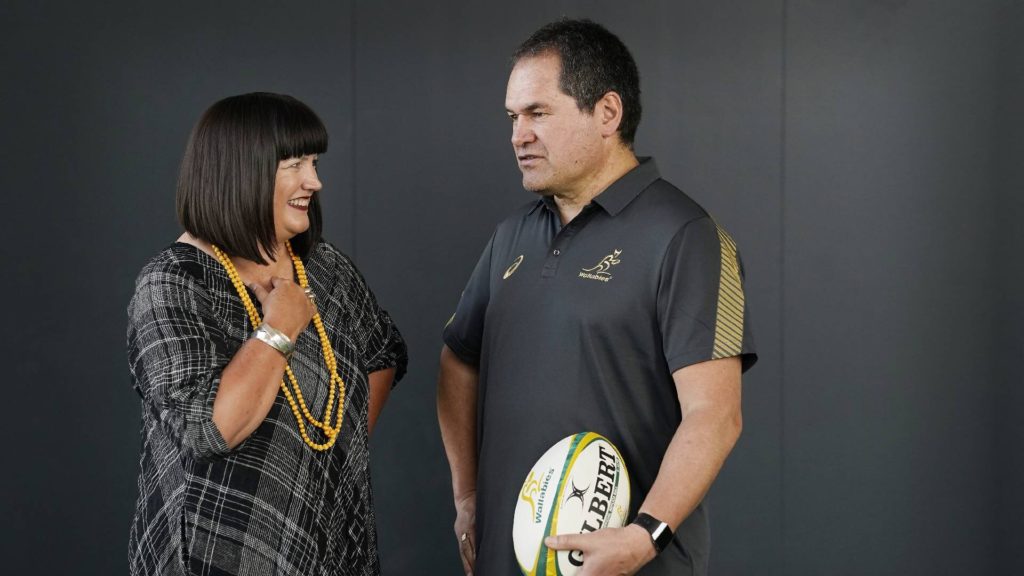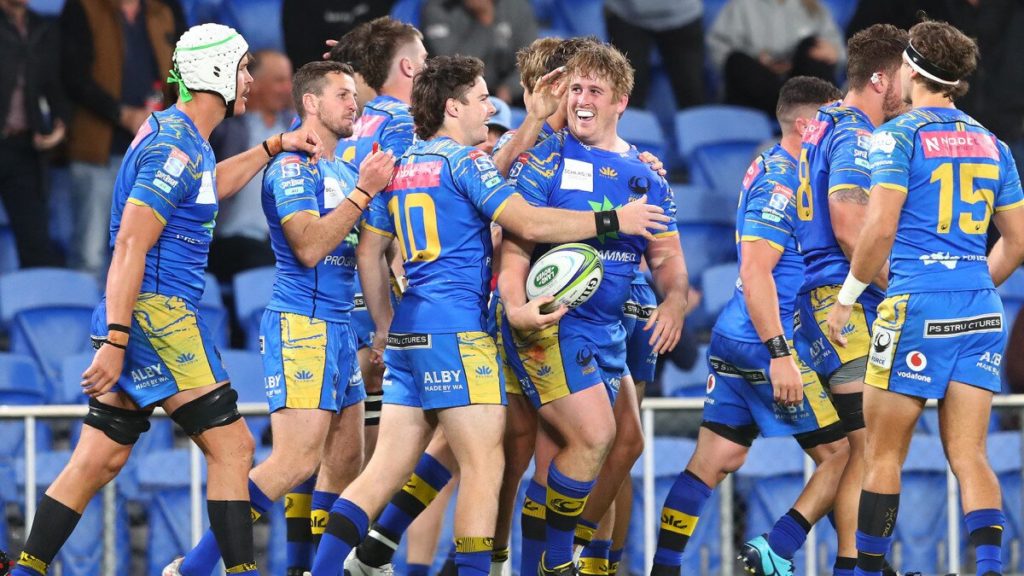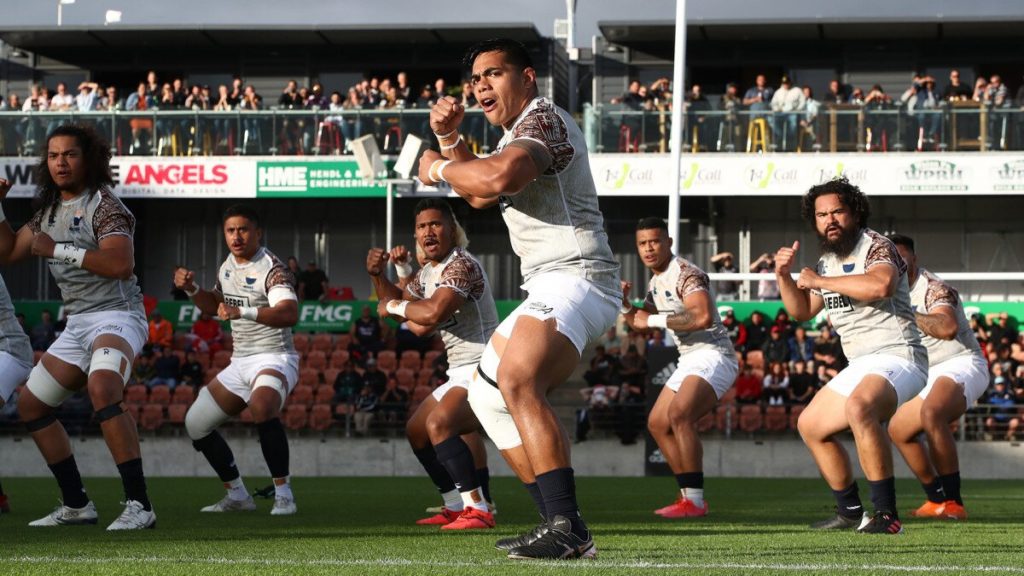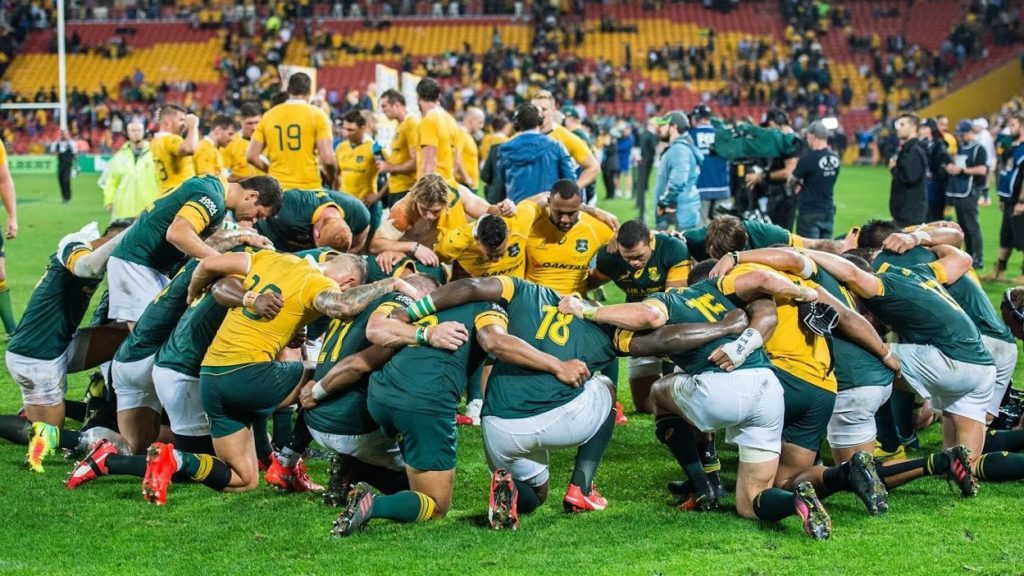When the global pandemic calamity is finally, thankfully, in our rear-view mirror, Australian rugby may look back at this tumultuous period as one that set them on the right road to future prosperity.
Prior to Covid tearing communities and their sporting pursuits apart, the game in Australia was already jolting through potholes and leaking oil as its revenue-generating Super Rugby competition lost fans and focus and stood accused of ignoring the game’s grassroots.
And despite a Sanzaar Super competition that seemed bloated and unwieldy, Rugby Australia and their partners were set to extend the status quo for another five years and attempt cosmetic surgery (again) around the structure.
Raelene Castle as RA CEO had declined to extend the broadcast deal with pay TV behemoth Fox Sports on similar terms and was out in the market looking for a new partner and free to air exposure.

Then the market collapsed as Covid bit hard.
Rugby in Australia suddenly had no broadcast deal locked in for 2021, and hence no funding path and a season in shreds.
Unlike local competitors for sporting eyes, such as the AFL and NRL, Australian rugby relied heavily on international travel. Perhaps that was one reason why Qantas was the Wallabies major sponsor, a deal that was also set to end in 2020 as the airline’s business faltered.
Castle and her chairman, Cameron Clyne, departed the organisation as issues took hold, and former Brumbies CEO Rob Clarke stepped in followed by respected businessman Hamish McLennan who joined as chair.
The landscape for the new duo and the game, looked stark.
“When I started officially on June 15, I was actually pretty concerned the whole game was going to collapse,” McLennan recalled of his 2020 onboarding. “Our finances were in pretty poor shape. And morale was low. But you know, Rob Clarke and myself sort of knuckled down and decided that we were just going to do whatever it takes to succeed.”
That involved the first steps of taking a big knife to the organisation’s finances and staff levels and then securing a new broadcast partner as a first step.
When I started officially on June 15, I was actually pretty concerned the whole game was going to collapse. Our finances were in pretty poor shape. And morale was low. But you know, Rob Clarke and myself sort of knuckled down and decided that we were just going to do whatever it takes to succeed.
Former RA chair Hamish McLennan
RA signed on with Nine Entertainment, with rugby to be delivered through Nine’s competitive streaming platform Stan and free to air channels.
“Getting the game on free to air will be important in terms of getting more kids exposed to the game, so that’ll feed our grassroots strategy,” McLennan said. “And as painful as it is to say, we’ve had to downsize or cut RA in half.
“And so we’ve let a lot of costs and a lot of people go which is difficult but necessary. So we’re a smaller, nimbler, more focused organisation. Now that we’ve got broadcast sorted, we can then focus on gate receipts, commercial relationships, sponsors, and driving the overall finances of the game, but we couldn’t move forward unless we achieved what we did [in broadcast].”
That plan to move forward on the field – the format of the competitions that comprised the new deal – was shaped by necessity as much as desire.
Super Rugby AU – with all four existing teams taking on a reborn Western Force within Australia’s borders – had been created to provide a domestic competition to keep the game afloat.

And additionally, the trans-Tasman concept was born despite the New Zealanders attempting to take control and diminish Australia’s position by inviting two or three AU teams into ‘their’ competition, potentially further shrinking the game in Australia.
McLennan has been publicly vocal about the strains the New Zealand approach put on the relationship but agrees that the new format of playing a full competition within Australia’s time zone, forced by the pandemic, is the right one for the game’s growth.
“[A silver lining] is a good way of putting it,” he said. “We were faced with some pretty tough decisions, and also coupled at the time, it was almost a perfect storm of negativity that we were dealing with.
“But the great thing that happened, I think, since Covid hit was that, and it’s not just me, but it’s Rob Clarke, and it’s the rest of the RA staff, but we just dug in and said, ‘we’re not going to take any stuff from the Kiwis’.
“We want to protect our five teams, we want to make sure that we’ve got the players protected, and we got really focused on just managing every dollar. I mean, we’re going to lose a fortune [in 2020]. I won’t say the actual number, but the very fact that we’ve been able to work our way through all those issues, restructure RA and get focused on what really matters and then pull off the broadcast deal means that we will survive.”
Surviving in a trans-Tasman relationship at Super level is a different beast.
Despite Australian rugby struggling with a growing chasm in performance between themselves and their geographically closest rivals in New Zealand, the concept makes an enormous amount of sense to connect with the rugby audience in both countries.
The competition created as a result of external forces will mean that in 2021, combined with a Super AU season which will crown an Australian champion, there will be around 20 weeks of Australia’s top provincial teams playing in prime time.
Previously fans were used to seeing their teams play once or twice at home before disappearing into distant 3am Johannesburg timeslots.
In 2022, a deeper trans-Tasman competition is proposed with potential for involvement from Japan or the Pacific Islands but maintaining the local relevance and availability to fans.

This can only increase the connectivity to the Australian rugby fan and is a small step towards the newly stated Rugby Australia goals of a whole of game approach.
The game has been criticised previously for allowing its professional arm to disconnect from its fans, communities and grassroots origins.
In cutting the organisation back to the bone, and building up again in a Covid world, the plan for a whole of game approach started by Castle has been accelerated and realised.
Not that the work can stop there. McLennan has floated State of Origin games for the code, national club competitions and greater Pacific Islands involvement in Australia’s rugby landscape.
The calendar ahead, built on a premium localised Super competition, will also focus on securing the World Cup rights for 2027 and hosting the British and Irish Lions in 2025, two major events that would swell the drained coffers of Rugby Australia.
There also remain issues in how things will play out in international rugby with South Africa’s move north alongside increasing pressure to work better with our Pacific Island neighbours.
“I think we’ve got to do more with Fiji and Pasifika, you know, it’s our backyard,” McLennan said. “Ultimately, you also have to look north and if you think about time-zone, then it would be great to be able to fit a Japanese team in and I think that will drive some big dollars in terms of media rights.
“But [with] South Africa, they’ve committed thankfully for another 10 years to The Rugby Championship, which is great … I’m comfortable that if you know we can have our relationship with them at the TRC level and then have a trans-Tasman competition, that’s a pretty good outcome given where we’re at, as I think most rugby experts were saying that Super Rugby in the southern hemisphere wasn’t quite working. So, for however we got here, I think trans-Tasman is better for us.”

For Australian fans, it has felt like the game has been getting kicked repeatedly for a few years. As New Zealand claimed win after win on the field, the game in Australia was obviously and clearly not aligned.
Now, after a pandemic disrupted the landscape, the game in this country has suddenly moved to a model that allows just the right progression.
I think we’ve got to do more with Fiji and Pasifika, you know, it’s our backyard. Ultimately, you also have to look north and if you think about time-zone, then it would be great to be able to fit a Japanese team in and I think that will drive some big dollars in terms of media rights.
Former RA chair Hamish McLennan
This season, the exciting new crop of young players get to fight out a Super AU tournament between themselves and build experience before progressing to face their New Zealand neighbours.
The Western Force are back and very much alive, and club rugby, Super Rugby and the Wallabies will be broadcast through the one partner on platforms with greater reach.
As the new players and competitions hit the field this year, Australians can enjoy a format that brings them more rugby, more often, creates clear pathways for players and makes sense for a game looking to rebuild.
Interim CEO Rob Clarke is departing in February, but McLennan is staying on board and sees plenty of upside as this rugby phoenix looks to rise from the ashes.
“I think we’ve hit our light under a bushel for too long,” McLennan said. “And so now I feel like we’re where we’re coming of age a little bit. So it’s going to be really exciting.”
More stories from Ben Kimber
If you’ve enjoyed this article, please share it with friends or on social media. We rely solely on new subscribers to fund high-quality journalism and appreciate you sharing this so we can continue to grow, produce more quality content and support our writers.


Comments
Join free and tell us what you really think!
Sign up for free